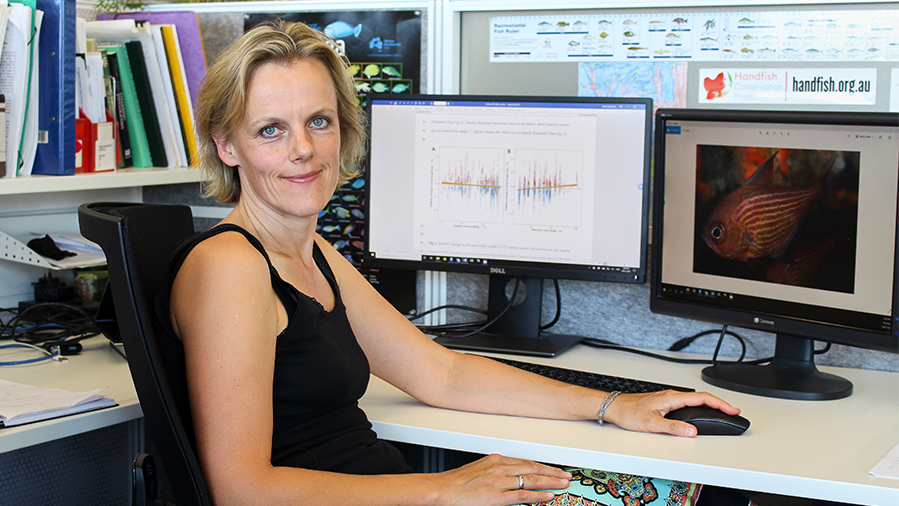Asta Audzijonyte, Ph.D.

- Title
- Research fellow
- Institution
- University of Tasmania, Nature Research Centre
- Country
- Australia, Lithuania
- [email protected]
- Award year
- 2020
Research
Predicting fish body size to improve sustainability in coastal fisheries
The size of a fish can determine how vulnerable it is to predators, how much energy and oxygen it requires, and how much and how often it can reproduce. Asta Audzijonyte will use global datasets to understand how warming oceans are affecting fish size diversity and will use this knowledge to inform more sustainable management of coastal fisheries and ecosystems.
Body size also affects what a fish eats, the role it plays in ecosystems, and its economic value to humans. The size of many fish species is expected to decline as oceans warm and fishing pressure increases. But size is often overlooked in fisheries management.
Audzijonyte will gather available global data on fish size, including from underwater video surveys, as well as environmental data, such as sea surface temperatures. She will also collect fish size information in unsurveyed areas by partnering with researchers who manage citizen science initiatives in several countries. Audzijonyte will then develop models to analyze these data and will explore the effects of changes in fish size on ecosystem and fisheries.
From her analyses, Audzijonyte will create maps of coastal fish species’ size diversity and identify areas where human activities are having the greatest impact on fish size, which can serve as an indicator of ecosystem health. Audzijonyte’s research will improve the scientific understanding of trends in fish size and enable more sustainable fisheries management in coastal habitats.
To learn more about Audzijonyte, read her bio: https://www.utas.edu.au/profiles/staff/imas/asta-audzijonyte
